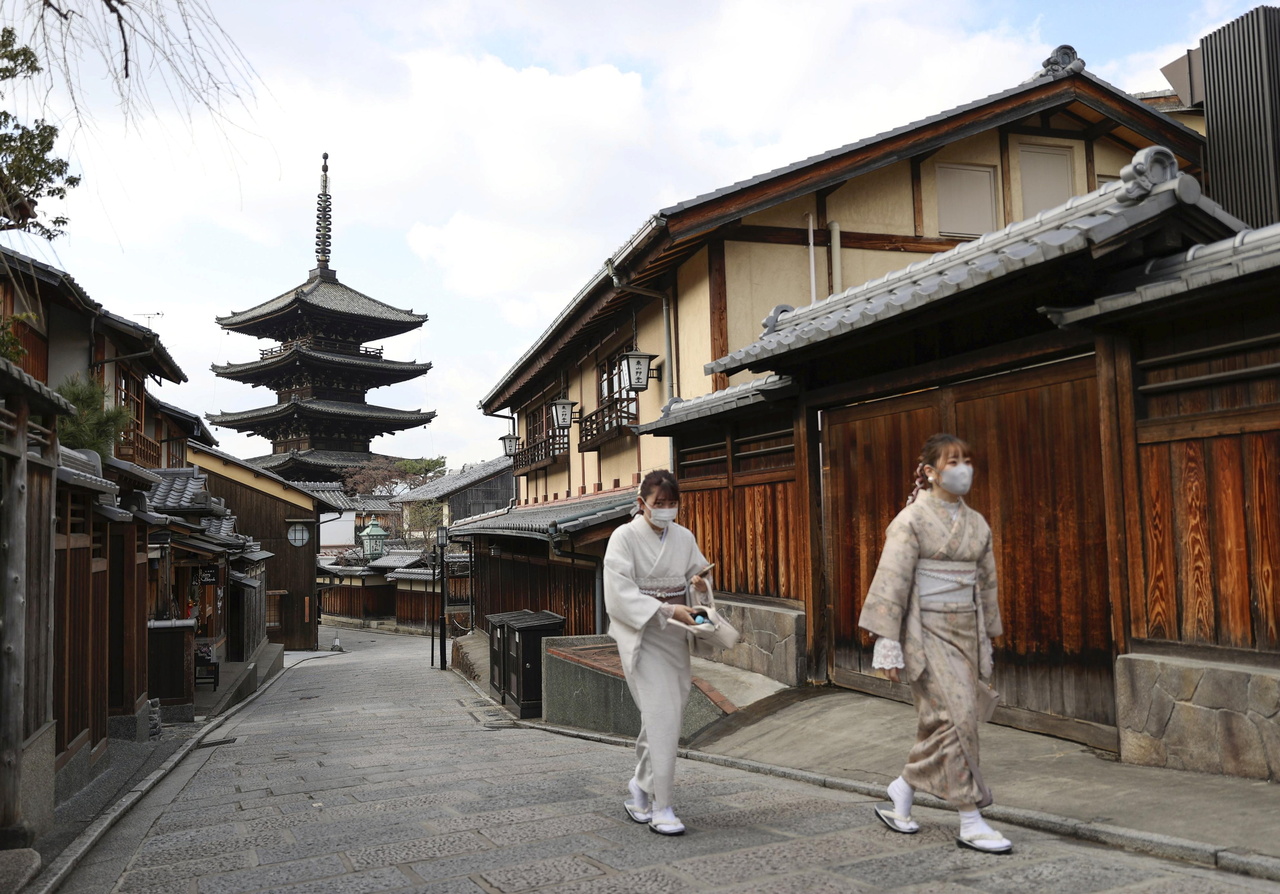Japan set to extend Covid-19 emergency by one month as economy sputters
Sign up now: Get insights on Asia's fast-moving developments

The concern going ahead is how much longer companies can hang on if the emergency is extended.
PHOTO: REUTERS
Follow topic:
TOKYO (BLOOMBERG) - Japanese Prime Minister Yoshihide Suga looks set to extend a state of emergency for major metropolitan areas that will inflict more pain on the economy, as he tries to stem the latest wave of Covid-19 cases and reverse a fall in public support.
The emergency covering 11 areas including Tokyo, Osaka and Nagoya has helped halt a rapid acceleration of virus cases threatening the developed world's oldest population. While infection numbers have started to drop under the guidelines, Mr Suga's government has said the number of cases remains worryingly high.
Mr Suga will extend the emergency by one month to March 7, after consulting with an advisory panel on Tuesday (Feb 2), Kyodo News reported, citing an unnamed official with knowledge of the situation. The measure will remove Tochigi prefecture from the original 11 areas after cases there dropped sharply this month, it said. He is expected to hold a news conference on Tuesday.
Parliament's lower house separately on Monday approved measures to add teeth to emergency orders including fines for bars and restaurants that defy instructions to close early. The legislation was expected to gain final approval later this week in the upper house, which is also controlled by Mr Suga's ruling coalition.
Japan's current measures including a request that people work from home are far less stringent and enforceable than the lockdowns of some European nations. But they have already caused a sea change in the view of economists. Instead of the year starting with a slowing recovery, some of them now see a double-digit contraction looming.
The prime minister, who runs the risk of being replaced by the ruling party ahead of an election that must be held by October, has seen his support slide since he took office about four months ago. Critics contend his focus on propping up the economy has slowed efforts to stem infections.
Extending the emergency will prolong the distress for businesses, but Mr Suga looks to have little choice if he is to control the virus, shore up his leadership and keep alive the hope of holding the Olympic Games in summer.
"The damage to businesses would be enormous," said sushi restaurant owner Mamoru Sugiyama, referring to an extension. Bars and eateries are among the firms hardest hit by the guidelines. He has temporarily closed his restaurant, which boasts a history of 130 years in the swanky Tokyo shopping district of Ginza.
"Some businesses are about to use up their loans and I think if the emergency continues through February, firms may start going bust one after another, even in Ginza," said Mr Sugiyama, who also heads a coalition of about 370 local restaurants and bars.
A Nikkei/TV Tokyo survey suggests the public is in favor of an extension. The Jan 29-31 poll showed 90% of respondents supported the lengthening of the emergency.
The government has said the emergency can end when the virus crisis eases to Stage 3 on a four-stage scale that draws on six data points.
In Tokyo, that would mean daily infections falling below 500 and staying there. Tokyo reported 393 new infections on Monday, the first reading below 500 since Dec 28 and well below the city's daily record of 2,447 on Jan 7.
As of Jan 27, the capital's hospital bed occupancy rate was 73 per cent and critical care units were at 113 per cent of capacity, according to the health ministry. Both numbers would have to come down below 50 per cent to reach Stage 3.
"We can see that the state of emergency has had an impact, but it's been too weak," said Dr Yoshihito Niki, a professor of clinical infectious diseases at Showa University's School of Medicine in Tokyo, indicating a need to prolong the measures. "The government will need to exercise patience at least through February."
Parliament's powerful lower house on Monday approved measures to add teeth to emergency orders including fines for bars and restaurants that defy instructions to close early. The legislation was expected to gain final approval later this week in the upper house, controlled by Mr Suga's ruling coalition.
Since the declaration of the emergency in early January, economists warned that the less stringent advisories compared with the first emergency in April, risked being insufficient and causing more damage over time. This time, schools remained open and streets continued to see foot traffic, albeit smaller than during normal times, despite repeated calls from officials to stay home.
Mr Toshihiro Nagahama, economist at Dai-Ichi Life Research Institute, sees an emergency extended to two months shaving about 3 trillion yen off the economy.
While the consensus among analysts is for the economy to shrink an annualized 2.5 per cent this quarter, economists Yoshimasa Maruyama and Koya Miyamae at SMBC Nikko Securities, now see a stronger finish to 2020 whiplashing into an 11.5 per cent contraction in the three months through March.
Still, an unemployment rate of just 2.9 per cent and year-on-year falls in the number of bankruptcies show that spending and loan support from the government and the Bank of Japan have helped cushion the economic blow of the pandemic so far. Mr Suga's administration got a third extra budget through parliament last week offering another round of help for businesses, medical facilities and the economy.
The concern going ahead is how much longer companies can hang on if the emergency is extended and consumer spending remains subdued.
Mr Yasuhide Yajima, chief economist at NLI Research Institute, warns there won't be a dramatic revival of growth even when the emergency ends unless there's more concrete reassurance for the public.
"Regardless of the state of emergency, consumption isn't going to come back until we see the impact of vaccination," Mr Yajima said.

